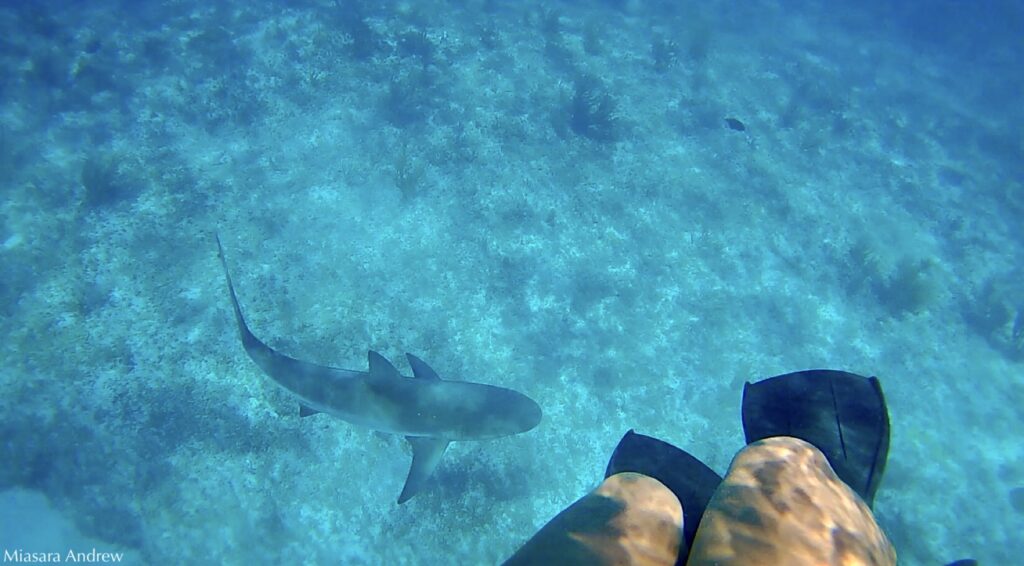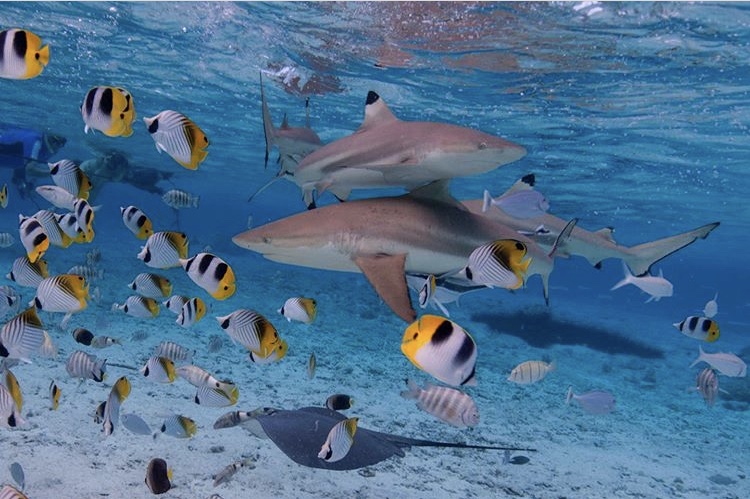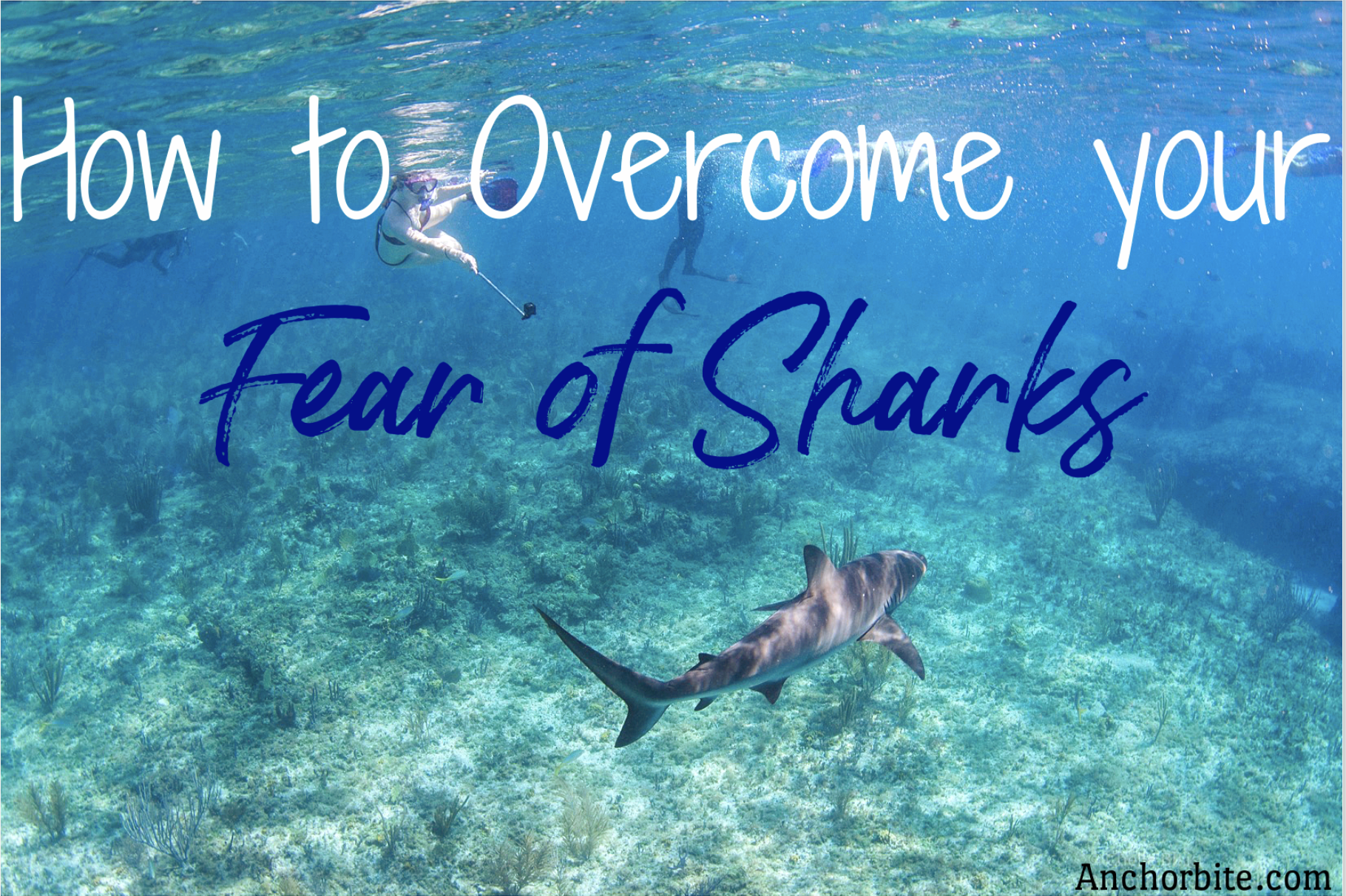“Without sharks, you take away the apex predator of the ocean, and you destroy the entire food chain”
Peter Benchley
Selachophobia (or Galeophobia) is the fear of sharks, which happens to be one of the greatest fears when it comes to the ocean. This fear keeps many from swimming in the ocean and even going out on boats.
This fear is generally derived from sensationalized news and dramatized movies. This has shaped societies perspective of sharks and changed people’s experience when swimming in the ocean.
As all sharks are unique in different ways coming in a variety of shapes and appearances, sharks are incredible examples of evolution, and rather than fearing them, you should be admiring them.
I’ve always admired the ocean and all the creatures it comes with for as long as I can remember. There was always something so compelling about it. But I grew up around people who feared the ocean, because of sharks. Sharks have some remarkable qualities and the ocean wouldn’t be as amazing as it is without them. I want others to be able to enjoy the beauty of sharks and overcome their fear of them.
With understanding the truth about sharks, confronting your fears, and learning some shark facts, you can overcome your fear of sharks and finally start enjoying the oceans, and maybe even start enjoying these amazing animals as well. Here are 6 ways to get over your fear of sharks.

1.Take the time to research sharks
——- a. Learn as much as you can about them
Do you ever notice how people tend the fear the things they don’t understand?
A really good way to get over your fear of sharks is simply just to learn about them. Most fears of sharks derive from not knowing anything about them. Become familiar with common shark behaviors, interests in food, and habitats.
Sharks are an apex predator at the top of the food chain and help regulate the health and populations of the oceans. The fact that sharks are so vital for maintaining a healthy ocean, and planet, makes sharks far more interesting than scary. Sharks are one of the most intelligent and extraordinary animals and it’s a shame to not want to learn about them.
Check out my previous post on how sharks help humans.
——- b. Know your odds of a realistic shark attack
The odds of being attacked and killed by a shark are 1 in 3.75 million. To put that in perspective, think about the fact that you are more likely to be killed by a dog or a wasp then by a shark. You’re also more likely to get struck by lightning than killed by a shark.
——- c. Know what species of sharks would most likely bite a human
There are as many as 450 species of sharks and only about 3 species are responsible for attacks: white sharks, tiger sharks, and Bull sharks. 97% of sharks are harmless to humans and unfortunately, a killer reputation is applied to all sharks. Sharks vary in all sizes and shapes posing absolutely no threats to humans. White sharks, tiger sharks, and bull sharks are among the more curious species and they tend to express their curiosity through biting. Yes, these sharks tend to be unpredictable at times, but the rest shouldn’t be perceived as dangerous when only 3 are mainly responsible for human attacks.

2. Don’t give in to the common misconceptions
Check out my post on common shark misconceptions vs the truth.
——- a. Resist giving in to sensationalism from the media
Whenever there is a shark-human interaction, the media goes crazy and loves to exaggerate the real story. The media uses the wrong terminology inducing fear. They like to use the words “shark attack” in cases where no injuries occurred at all. To the media, it seems that any category of a shark encounter, including simple shark sightings, is a case of a shark attack, which is perpetuating negative and harmful stereotyping about sharks.
Let’s not forget about the mistaken identity and the curiosity from sharks that leads to human injuries! As well as human provoked attacks. But that part is almost always left out of the news.
——- b. Resist giving into the role’s sharks play in movies
Along with the media exaggerating the news, Hollywood likes to dramatize movies. With dramatic music and visual effects, as well as depicting sharks as killers hunting and seeking revenge on humans, movies instill fear in the minds of viewers. Films purposely use daunting music in the presence of a shark and multiple jump scares to intentionally scare the viewers. However, many walk away from these movies scared of the ocean.
——- c. Talk to a shark expert
News reporters and writers are not shark experts and most know very little about sharks. What they do know is how to exaggerate their news for people to tune in or read it. Visiting your local aquarium, watching shark documentaries, or talking to real shark experts or biologists about sharks will provide factual information about these animals.

3. Understand that sharks don’t eat humans
Humans are not part of a shark’s diet. If it makes you feel better, humans are not fatty enough for sharks! Sharks would much rather eat marine mammals with more fat.
When sharks bite, they are not intentionally trying to harm humans. It’s usually a case of curiosity or mistaken identity. Sharks are very curious animals, especially to unfamiliar things that they come across in the ocean. As a human enters the ocean, sharks tend to explore humans through a biting form.
Mistaken identity occurs a lot, and sharks confuse a human from a seal, as they look similar at the surface.

4. Face you fears
——- a. Dive with sharks
Scuba diving, swimming, or snorkeling are all great ways of confronting a shark and facing your fears of them. It’s helpful to observe a shark in their natural environment interacting with other marine life. When you’re physically swimming with a shark in their home, you’ll come to find that they are very uninterested in you!
If you are nervous about swimming with them, cage diving is another great way to witness a shark in its natural environment, while also making you feel more protected. Some aquariums offer opportunities to swim with sharks, putting you in a more controlled environment.
——- b. Visit sharks at an aquarium
Getting close to a shark, even if separated by glass, is another great way to face your fear of sharks if swimming with them is too much for you. At an aquarium, you can still watch them swim around and interact with other marine life.

5. Think about the danger humans pose
——- a. Shark attacks vs human attacks
Despite a few injuries to humans by sharks, humans cause exponentially far more damage to sharks each year. In 2019, there was a worldwide total of 64 confirmed unprovoked cases of shark attacks. However, it is estimated that 100 million sharks are killed each year by humans.
——- b. Threats
There are so many threats to sharks caused by humans responsible for these 100 million deaths. This includes shark finning, bycatch, pollution, overfishing, habitat degradation, and more.
Check out this blog post I wrote on Sphyrnas on the common threats to sharks.

6. Don’t watch shark movies without knowing the truth about sharks
Shark movies are made with the intension of utilizing sharks as villains and there are almost no scientific facts about the real behaviors of sharks applied.
Shark movies are not documentaries, they are made for your entertainment. These movies are made in attempt to induce fear into their viewers by creating a false image of sharks. As sharks are displayed as animals stalking humans and seeking revenge, it’s easy to take this seriously in real life.
It’s important to remember that these movies are intended for pleasure and enjoyment, and almost everything that happens in these movies could never realistically happen.

